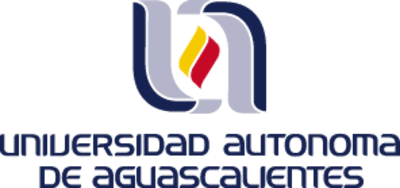
PhD in Sociocultural Studies
Universidad Autonoma de Aguascalientes

Key Information
Campus location
Aguascalientes, Mexico
Languages
Spanish
Study format
On-Campus
Duration
3 years
Pace
Full time
Tuition fees
Request info
Application deadline
Request info
Earliest start date
Jul 2024
Scholarships
Explore scholarship opportunities to help fund your studies
Introduction
The Center for Social Sciences and Humanities presents the study plan for the Doctorate in Sociocultural Studies (previous name, Doctorate in Social Sciences and Humanities), with an orientation towards the training of researchers, to offer a quality, transdisciplinary and flexible postgraduate option. This study plan derives not only from the needs detected in society, but also takes into account the lines of research currently being developed by the Academic Bodies in our Center.
The student will have a thesis tutor appointed from the first semester to ensure personalized attention that will guide him to organize, plan and develop his protocol, in addition to giving him the opportunity to develop his skills and generate his own needs to face the problem of his line of research and that he will develop in the course of the thesis workshops. Together with their tutor, the student will be able to select optional subjects from the set of subjects that each line of the program offers to complement their training in the chosen line. The tutor may also recommend mobility and research stays at the national level and preferably internationally for curricular courses and research activities that contribute to the quality of the research carried out by the student. It should be noted that the optional subjects described in the curricular structure derived from the LGAC are illustrative and not limiting.
The Doctorate offers the following lines of generation and application of knowledge:
- Sociocultural processes.
- Politics, urban processes and work.
- Social and cultural history.
- Communication and languages
goals
Train researchers in sociocultural studies who are situated in current discussions in the field, who are capable of generating knowledge of quality recognized by their peers in the chosen research topics and which influence the understanding of social and cultural problems.
Graduation profile
Knowledge of:
- The central concepts within the framework of the theories of social action.
- The central concepts within the framework of the theories of culture.
- The logic, processes and research strategies in the field of sociocultural studies.
- The main techniques of data collection, analysis and interpretation.
- The state of the art and contemporary debates within the LGAC and the themes chosen to carry out his thesis.
Abilities:
- Generate quality academic texts.
- Insert yourself into current discussions in the field.
- Train researchers.
- Design basic and applied research projects.
Attitudes:
- Openness to work in interdisciplinary teams.
- Commitment to the study and analysis of social problems, and willingness to contribute to their solution.
- Criticism aimed at opening alternatives in the field.
- Innovation and creativity that are expressed in their ability to generate research proposals.
Values:
- Intellectual honesty.
- Recognition and respect for sociocultural diversity.
- Epistemological assessment of the gaze of social actors.
- Respect for intellectual positions different from their own.
Requirements to obtain the degree
1 Have at least one scientific article that disseminates the results of the thesis (published or in the process of ruling). The article will be encouraged to be prepared in collaboration with the doctoral student and the tutor.
2. Accreditation of the Predoctoral Exam whose objective is to verify the quality of the thesis work so that it is in a position to be publicly defended in the degree exam. It must be done once the student has covered all the subjects and activities of the study plan and has a final draft of the work (product of the VI semester) and has obtained a minimum average of 8 (eight).
For its realization, the Academic Council will assign a committee made up of five members: the three members of its tutorial committee, and two more academics; it is desirable that at least one is external to the UAA. The results will define the next step. These might be:
- Accredited: The thesis will be printed to be able to take the degree exam. The approval vote of the five members of the committee will be required.
- Accredited with recommendations: The student will proceed to resolve the questions and make the necessary corrections within the period indicated by the Committee.
- Not accredited: The student will follow the recommendations made to improve their work and may retake this exam for a second time, in terms of the General Teaching Regulations. The student will have as limit the year that the regulation establishes for the degree, time in which the recommendations must be incorporated, resubmit the pre-doctoral exam, carry out procedures and obtain the degree.
3 Completion of the degree exam that consists of the public defense of the thesis for the granting of the degree of doctor, in accordance with the regulations of the UAA.